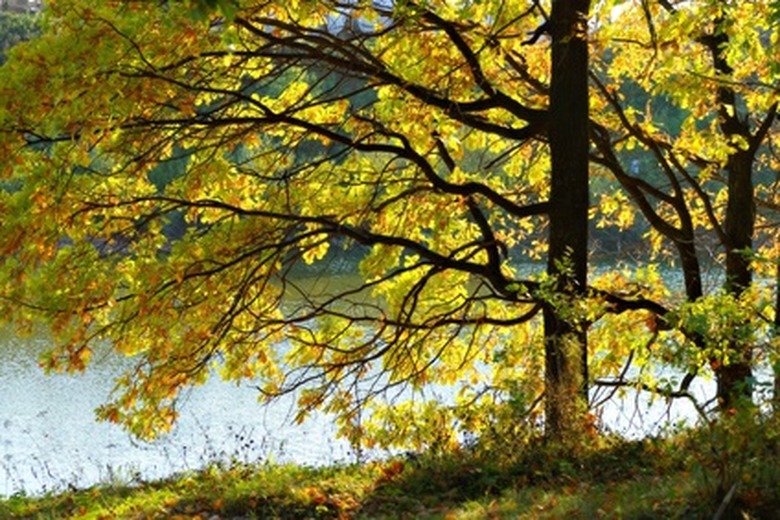How Does A Change In Season Affect An Ecosystem?
When seasons change, the biological and chemical functions of an entire ecosystem are altered. This is because energy consumption and resources are cut or added drastically depending on the season.
Cause-Effect
Most ecosystems work in a cause-effect relationship. When one resource is lost or added, it affects the entire ecosystem. A good example is the food chain, an integral part to an ecosystem. If the lowest life form in the food chain disappears, then larger animals may begin to die off.
Seasonal Shifts
Seasonal shifts do not last long and there does not have to be a drastic effect on the ecosystem. When winter occurs and a plant dies, there is no mass extinction or environmental damage. The ecosystem is prepared for the winter, allowing all aspects of the ecosystem to survive even with limited resources.
- When seasons change, the biological and chemical functions of an entire ecosystem are altered.
- When one resource is lost or added, it affects the entire ecosystem.
Concerns
Climate change is expected to negatively impact ecosystems. A longer than normal winter, for example, would impact the environment severely since other aspects of the ecosystem have not adapted to such a shift. Hence, ecosystems adapt to the cycles of the seasons, but climate change radically shifts the cycles, harming all parts of the ecosystems.
Ecosystem Of A Garden
Though it may be relatively small, a garden is a complete ecosystem in and of itself. It has the same components as larger, more elaborate ecosystems, and requires the same elements to survive. Every ecosystem is made up of three groups of organisms: producers, consumers and decomposers. A garden's plants are its producers, called so for their ability to produce their own food from sunlight. Fungi, bacteria, insects and worms make up a garden's decomposers. A garden is an engineered ecosystem.
- Climate change is expected to negatively impact ecosystems.
- A garden's plants are its producers, called so for their ability to produce their own food from sunlight.
